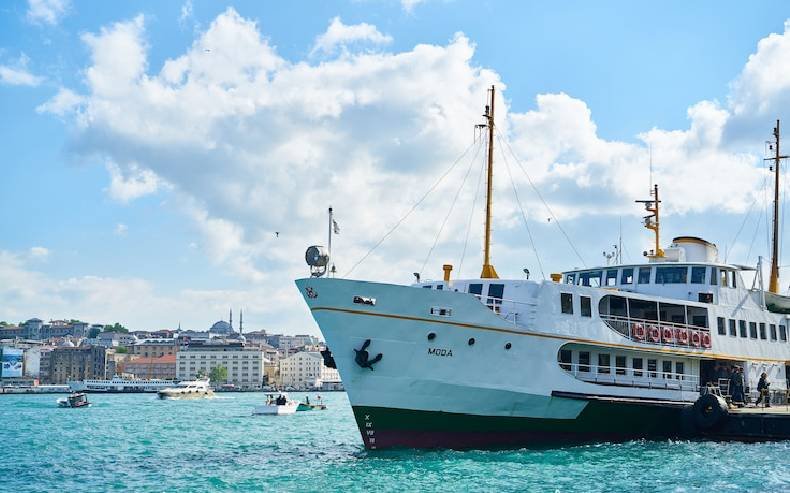As the maritime industry is progressing at a fast pace, it is crucial to adapt to the changes continuously. Global technologies, policies, and standards that characterize the maritime industry seek to alter how these professionals operate. Thus, its survival, let alone enhancing safety and productivity and attaining desired career satisfaction, requires a positive response to these changes. Maritime training and maritime professional courses improve and update the worker’s knowledge and skills to the latest. Lifelong learning in maritime is compliance and, more importantly, leadership, safety, and competitiveness for life.
This blog will discuss 8 crucial aspects of why continuous learning is essential for maritime personnel and why they should pursue further education.
The Importance of Lifelong Learning in Maritime Careers
It gives maritime professionals all the knowledge and skills they require in their careers through continuous learning processes with appropriate theories. It is always important to remain informed, especially in a harsh world like the maritime, where knowledge and flexibility are key determinants.
Now, let’s briefly examine the 8 most significant arguments why continuous learning is crucial for employed maritime staff.
1. Ensuring Safety at Sea
Maritime safety comes first for all the workers in the marine industry. Maritime training promotes topical training where fresh learnings in safety measures, including drills for vessel handling, are imparted. Since risks are dynamic, seafarers must always be ready to face other risks inherent in the sea. Consequently, re-education assists in avoiding mishaps and injuries on board any seaborne vessel while safeguarding the lives of all the personnel on board.
Safety courses involve mandatory topics such as firefighting, medical emergencies, and disasters. The result means that a well-trained crew can handle emergencies, save lives, and preserve the freight. As the name suggests, it is crucial for practicing and aspiring marine workers to learn safety practices as they may save a marine worker’s life.
2. Adapting to New Technology
The maritime industry is increasingly becoming a technology industry. From automated processes to automated navigation, modern ships are equipped with systems. Ongoing professional development allows these professionals to run the machinery and deliver the technologies suitably. Electronics chart display, communication, and automatics are among the topics offered in maritime professional courses.
Lack of current knowledge of these innovations poses a problem to the profession, making the professionals less efficient and safe. Besides, it helps acquire information on new technology, making seafarers work smarter. In short, one must be up-to-date with the technological changes to survive in today’s maritime industry.
3. Complying with Regulations
These experts have to obey numerous international rules and regulations. Such rules as SOLAS and MARPOL provide for safety and environmental conservation. Seafarers can meet these regulation changes through their regular training in maritime education. Severe penalties are inflicted for these law violations and can produce significant consequences at career and company levels. For instance, the new courses include changes in waste management and pollution standards.
Professionals competent in those laws contribute to sustaining the wholesome image and integrity of the industry. In other words, the issues of regulation are essential for professionals in the maritime field.
4. Enhancing Environmental Awareness
Environmental concerns are emerging as a significant factor in the maritime industry. This means that the status of modern technology in controlling pollution and conserving resources can be passed on to employees through continuous learning. Maritime professional courses that have now been included are those giving information concerning reduced emissions and waste. For instance, the seafarers appreciate how to dispose of waste appropriately and embrace green policies.
Most importantly, they help to save our oceans and meet universal sustainable development goals. Environmental training is the process by which working professionals enhance their impact on society. To promote a cleaner and greener Maritime Industry, knowledge on the subject must be constantly acquired.
5. Advancing Career Growth
Lifelong learning enhances career advancement. Maritime professional courses make the professionals more specialized in their working areas through certifications. These qualifications allow the person to get better ranks, including the officer or captain position. For instance, a deckhand can train to become a chief mate. Also, employers look at persons dedicated to learning because this may lead to a promotion clause.
Lifelong learning also enhances job satisfaction since people get confidence in the positions they handle. Therefore, continuous learning provides career progression and job security in a competitive industry.
6. Developing Specialized Skills
The nature of marine professions involves obtaining a set of technical working skills. Education on the job ensures that seafarers gain vast knowledge in areas of navigation, engineering, and management. Maritime training ensures that such specialized skills are developed because they are relevant to performing demanding tasks. For instance, engineers enhance their understanding of machinery while navigators do mapping.
These specialized skills enhance overall vessel operations because the skills of each crew member are essential. Seemly, specialized training gives maritime professionals every opportunity to remain competitive and up to par in their field.
7. Improving Teamwork and Communication
Cohesion in teams is critical within ships. Whether in an office or a spaceship with little physical space, people must work efficiently on their spoken words. Ongoing study in maritime professional courses emphasizes acquiring teamwork and communication skills. For instance, leadership courses and interpersonal skills enable seafarers to deal well with other people.
Comprehensive communication leads to the elimination of breakdowns in communication, which may be crucial in case of an emergency. However, good teams ensure that an organization’s operations are organized and smooth throughout the day. Hence, training in teamwork is essential for developing a harmonized work culture within the ship setting.
8. Strengthening Problem-Solving Abilities
The employees in the maritime industry experience so many problems, ranging from mechanical issues to weather problems. Maritime training involves preparing for potential problem-solving situations and training seafarers to tackle them. For example, the professionals are taught how to address equipment failure problems expeditiously.
For high-pressure dealing, proper problem-solving skills should always be on. Through professional activities, people acquire the experience of appropriately identifying and acting upon such cases. Such skills are vital in tackling various emerging issues and maintaining efficiency at sea.
The Bottom Line
To sum up, learning has to be a continuous process for the maritime professional. To acquire the necessary knowledge and skills in their respective profession, such as in maritime training and maritime professional courses, seafarers always prepare to address some of the most challenging situations in the line of duty. Whether it is related to safety, technology, or career enhancement, the value of continuous learning can’t be overemphasized. Education is definitely a key to the most important maritime disciplines for anyone who would like to take a successful position in this field. Acquire skills that will help you keep moving forward in your career, and you will use these skills to succeed throughout your life.
Read also: 8 Marriage Counsellors in India Known for Their Impactful Results



